Existing User Log In
New User Registration
Register for a free account to gain full access to the VGChartz Network and join our thriving community.



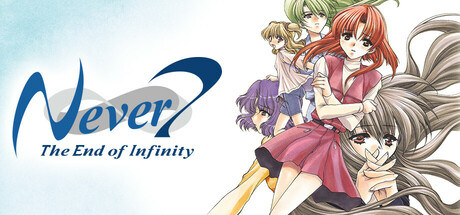

America - Front


America - Back

MAGES. Inc.
Visual Novel
 (Add Date)
(Add Date) (Add Date)
(Add Date) (Add Date)
(Add Date)
| Owners: | 0 |
| Favorite: | 0 |
| Tracked: | 0 |
| Wishlist: | 0 |
| Now Playing: | 0 |
The Infinity series is hardly a household name. For starters, it's made up of visual novels — not exactly a best-selling genre. For another thing, the games have rarely left Japan. That's why the recent remasters of the first two games in the franchise, published worldwide by Spike Chunsoft and developed by Mages from original work by KID Co., Ltd., are reasons for excitement. If you enjoy interactive novels, particularly those focused on science fiction, mystery, and romance, these titles — especially the first, Never 7 - The End of Infinity — are worthy of your attention.
Never 7 follows a group of university students during a seven-day seminar retreat on an island 200 kilometers from the mainland. The narrative revolves around the protagonist Makoto Ishihara, a young man only sporadically engaged with his schoolwork. When Makota wakes up on the morning of April 1, he vividly recalls a troubling dream from the night before in which someone important to him dies on April 7, clutching a small bell. Over the following week, he grows closer to his classmates, along with other inhabitants of the island, all the while wondering if his dream was a figment of his imagination or a premonition of a very real event yet to come.
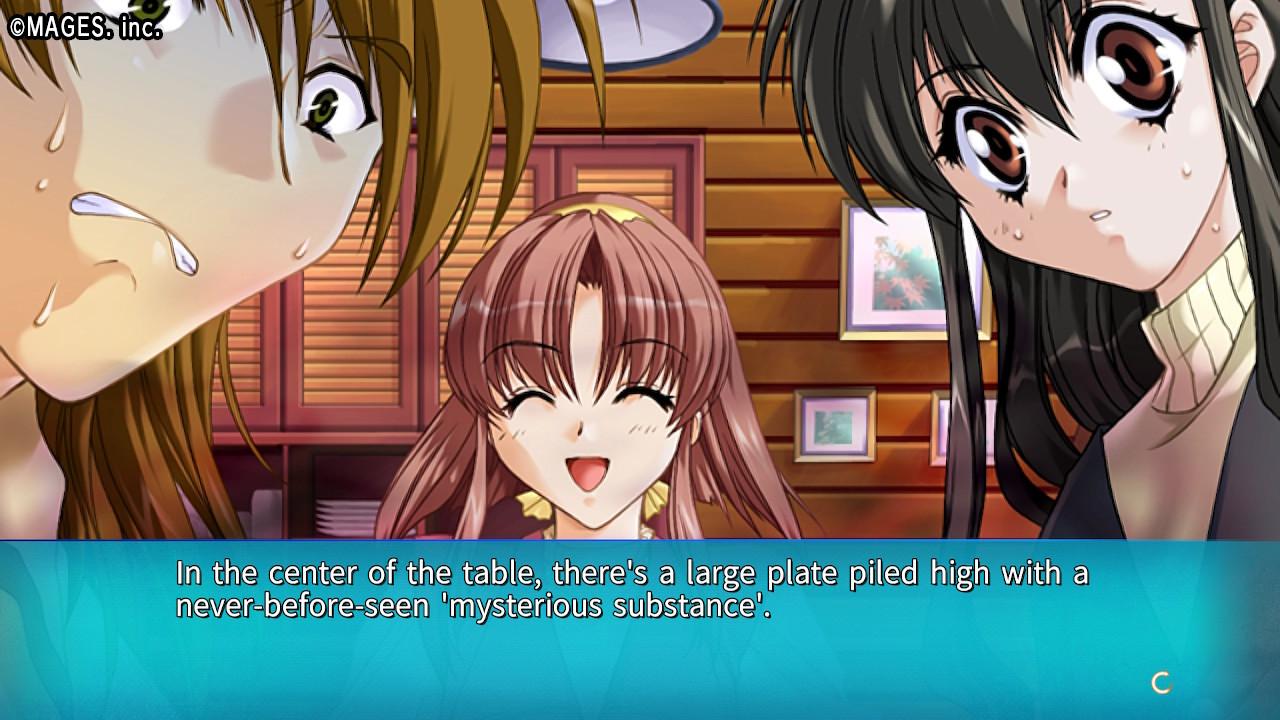
In terms of atmosphere, Never 7 hits it out of the park. Written by Kotaro Uchikoshi, one of the true masters of the visual novel genre, it's a potent mix of mystery, romance, science-fiction, and slice-of-life. The overarching puzzle of Makoto's deadly dream/premonition keeps the action moving and maintains an uneasy, underlying sense of dread, while the daily activities on the island have a lovely realness to them. Somehow, the game finds a way to mine drama both from its life-or-death situation and from all the little accidents of everyday life. It's one of the most authentic, poignant, and moving visual novels I've ever played.
That said, not everything is perfectly harmonious. While Uchikoshi works wonders blending different genres into a singular storyline, he isn't always successful in matching the game's sci-fi aspirations with its dating sim elements. According to some reports, the writer actually wanted to lean more heavily on speculative and futuristic ideas, but was gently steered toward romance by producers at KID Co. This certainly makes sense, since the game, at times, seems like it's in a bit of a tug-of-war with itself. Still, it's hard not to become entranced by the sci-fi conceits that are here. It's hard not to fall in love with its characters, as well.
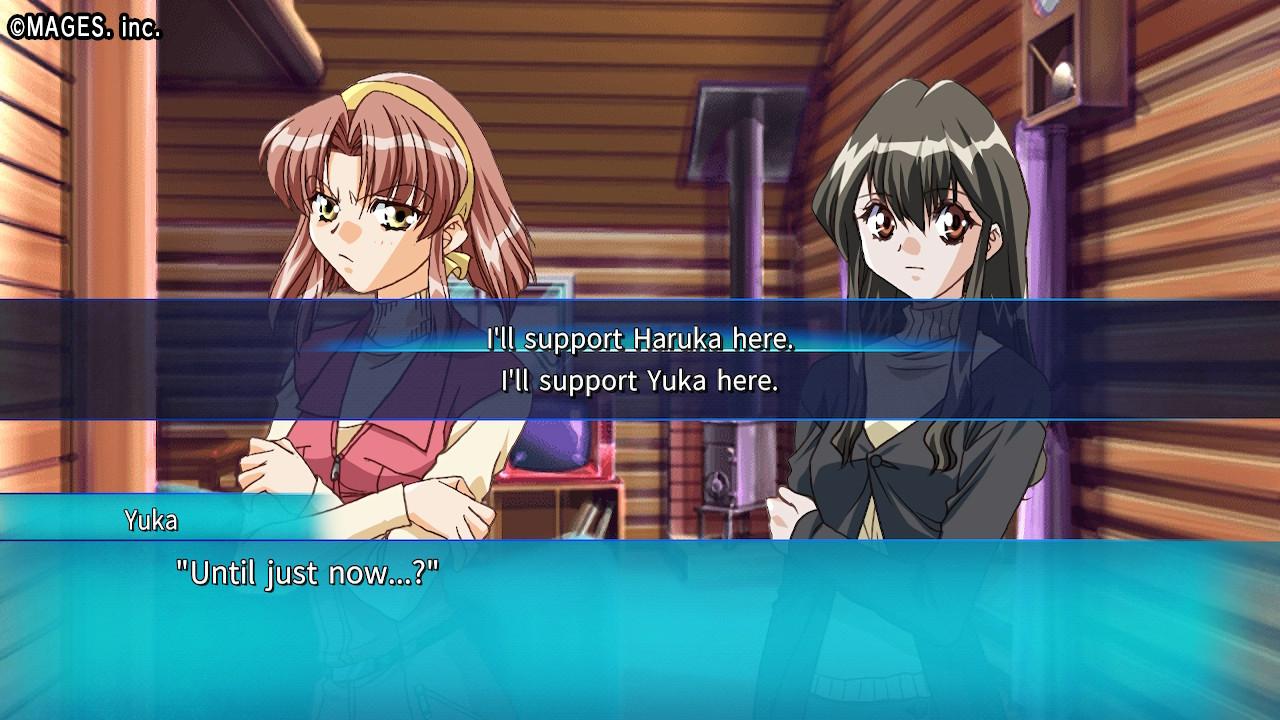
It's a good thing that Never 7 has a great narrative, a rich atmosphere, and memorable characters, because mechanically it's not all that interesting. This is a true visual novel, so the main thing you'll do as the player is experience the story by pressing a button to advance through dialogue and narration. There aren't any physical challenges to overcome or problems to solve, apart from the ongoing mystery of April 7. To be fair, though, there are many choices to make. At several key moments each day, you must make a decision that will open up new conversations and encounters, and set you on a path toward a certain ending, either "bad" or "good". Since the choices pop up at regular intervals and since each decision will allow you to pursue a more meaningful relationship with a particular friend, there's a satisfying sense of agency, despite the limitations inherent to the genre.
Because of all these decisions, which feed into several routes and lead to 18(!) different possible endings, Never 7 is incredibly rich in replay value. Indeed, if you want to see the "true" ending, you'll have to finish each main route, the first of which will take about 13 hours, if you scroll slowly and listen to every voiced line. This structure, in which the game is designed to be replayed again and again, is both a blessing and curse. The good part is that there are many different encounters, conversations, and plot twists waiting for you, even after the credits roll. The bad part is that you must scroll through a lot of familiar dialogue to see it all.
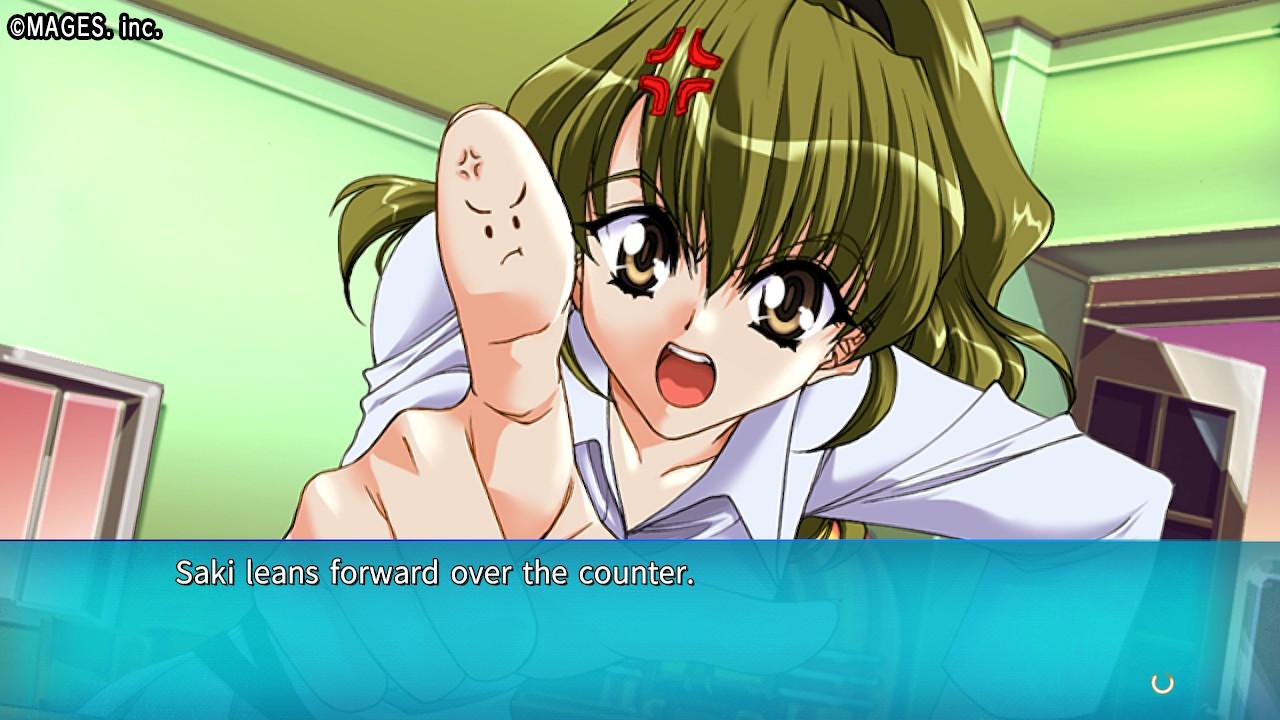
Thankfully, the game comes with a fast-forward function that allows you to speed-run through previously-viewed scenes. Importantly, it will stop at each major juncture, allowing you to make new choices, and slow to normal speed when you encounter brand new dialogue. While this functionality is nice, a flowchart in the style of Virtue's Last Reward would be even better. It's a shame it's not present in this remaster.
So, what is present in this remaster? For starters, a brand new localization. This Spike Chunsoft-published release marks the first time Never 7 has been officially localized outside of Japan, which is a big deal. As for the quality of the translation, it's competent. While some lines are translated too literally, and there are more than a few distracting, disengaging typos, the adventurous, mysterious, romantic, and comical components shine through. No matter the typographical flaws, this game will make you laugh, cry, and think deeply.
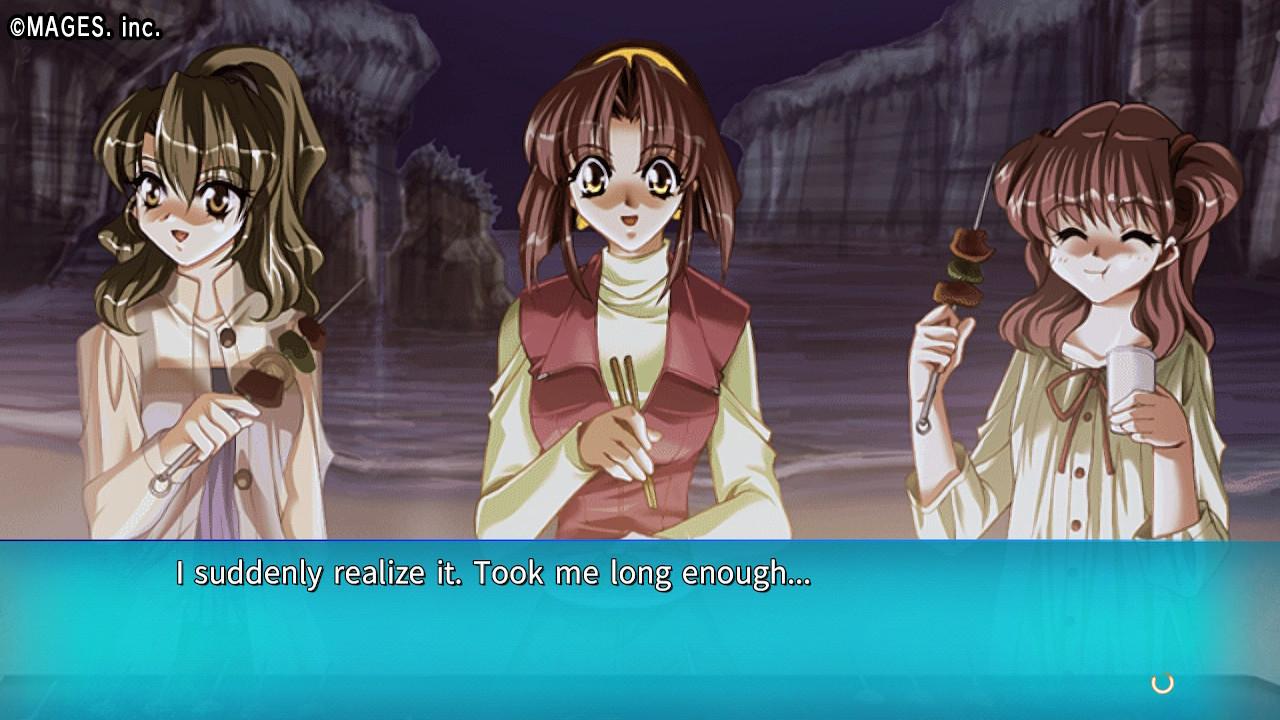
The remaster also boasts cleaned-up visuals and new widescreen presentation, which brings with it pros and cons. The upside is that the game is now ideal for modern displays, with a much cleaner, crisper image. The downside is that during the transition from 4:3 to 16:9 the game shaved off the tops and bottoms of scenes. It's not at all a deal-breaker, however. In fact, you wouldn't notice unless you already played the original on PlayStation or Dreamcast.
You will notice, however, that some of the assets, particularly backgrounds, are a little rough around the edges. There's a certain preliminary, sketch-like quality to the game's visuals, as if they were incomplete. You can see individual brush strokes in backdrops, for instance. It's not bad, exactly — in fact, it sometimes bestows upon the game the captivating vibe of an impressionist painting — just somewhat unfinished.
There's nothing unfinished about the game's voice acting, however. In fact, it's stellar. Kid Co. struck gold 25 years ago when it cast Tomoko Kawakami, Yuki Matsuoka, Wakana Yamazaki, Kikuko Inoue, and Susumu Chiba. They all bring incredible depth, energy, and pathos to their roles. The game simply wouldn't be the same without their contributions.
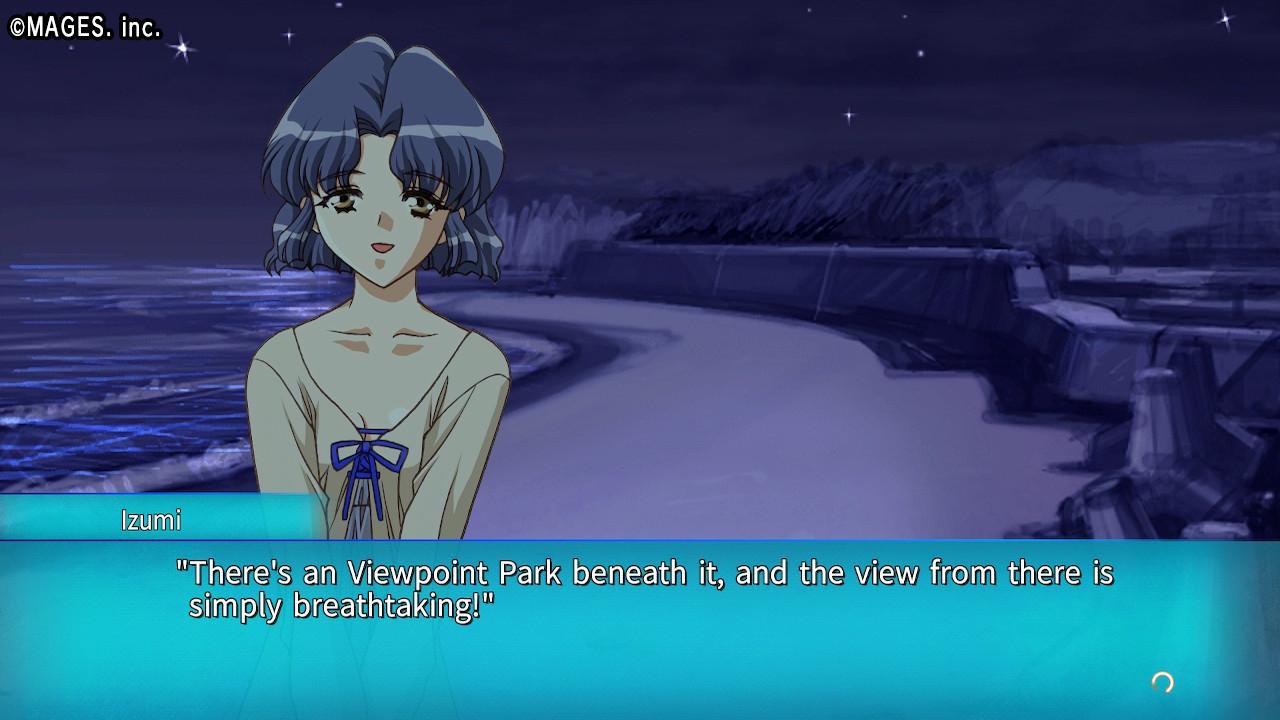
Nor would it be the same without an excellent soundtrack from Takeshi Abo, who went on to score other Infinity games, plus Steins;Gate, Chaos;Child, and last year's Emio – The Smiling Man: Famicom Detective Club, among many others. While there aren't a lot of musical tracks in Never 7, each one does some seriously heavy lifting. "In the sunny spot" makes each scene feel summery and full of potential; "Like real in mist" is a pensive tune that creates an air of uncertainty; "Haruka" has a wistful sadness to it; and "Yuka" makes it feel like everything is going to be alright.
After 25 long years, Never 7 - The End of Infinity finally has an international release, thanks to this remaster from Mages and Spike Chunsoft. While this version isn't perfect — it carries over the original's limited interactivity and introduces some new localization issues — it remains required playing for visual novel aficionados, due to its mysterious storyline, heady science-fiction ideas, lovable characters, huge replay value, extraordinary voiceover work, and evocative music. Even those lukewarm on the genre should give it a try.